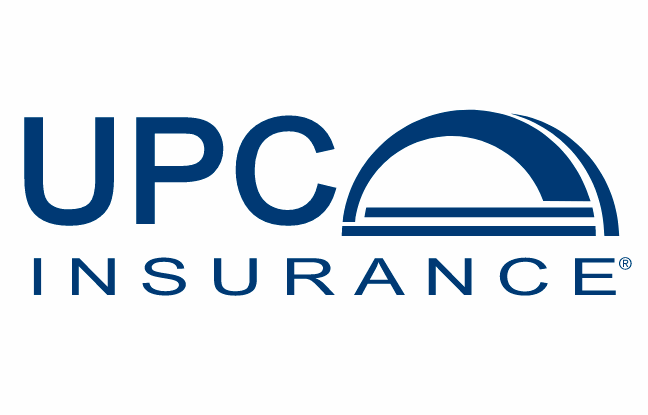United Insurance Holdings (UPC Insurance), the Florida headquartered but regionally expansive insurer of catastrophe exposed property, benefited significantly from changes made to its reinsurance program at the last renewals, as a larger proportion of its catastrophe losses was ceded to its reinsurers in Q3 2021.
 United (UPC Insurance) had previously said that hurricane Ida would drive a full retention loss event for the company, and then pre-announced $37 million of catastrophe losses for Q3, net of expected reinsurance support.
United (UPC Insurance) had previously said that hurricane Ida would drive a full retention loss event for the company, and then pre-announced $37 million of catastrophe losses for Q3, net of expected reinsurance support.
In its third-quarter results announcement yesterday, United (UPC) hinted at the far-better protected business it now has, thanks to updated reinsurance arrangements.
The company had lowered its main catastrophe reinsurance retention and enhanced its aggregate protection at the mid-year renewals.
Speaking yesterday during the insurers earnings call, CEO Dan Peed explained that, “The third quarter results are in line with expectations and reflect continued execution of our 2021 Transition Plan.
“This plan is to reduce our gross and net hurricane exposure through increased reinsurance, exposure management and reduced catastrophe retention levels, knowing that this is going to drive increased reinsurance spend.”
The plan is clearly working, as United (UPC) only retained around $30 million of losses from hurricanes this season, compared to $125 million in 2020, Peed explained.
Ceded premiums actually dropped during the quarter, year-on-year, but that was largely due to the stronger quota share reinsurance protections that are now in-place.
“The third quarter was an active hurricane quarter resulting in a modest loss, much reduced from last year and in line with expectations for this continuing transition year,” Dan Peed, CEO of UPC Insurance commented on the results. “Over the last year we significantly reduced our gross and net catastrophe exposures, which resulted in a materially reduced hurricane loss for the third quarter. We continue to take steps to improve our underlying profitability including increasing rates, strong exposure management and improved risk selection techniques, as we look forward to a return to a strong underwriting profit.”
Not only are net and core losses far lower than the prior year, despite hurricane Ida’s impacts, but United (UPC) has reported a massive 246.9% current accident year direct loss ratio for its personal lines book, which was far higher than the 104% reported in the prior year.
Despite this, United (UPC) reported a lower net loss ratio year-on-year, as reinsurance effects appear to have supported the majority of what could have been a relatively significant hurricane Ida hit, suggesting reinsurance partners have provided significant support in the last quarter.
Overall, United (UPC) fell to a net loss of $14.3 million, which was greatly improved on the $74 million loss a year earlier.
Reinsurance is playing an increasingly significant role for these coastal and catastrophe exposed insurers, as they continue to shift their businesses towards models that rely on efficient access to reinsurance capital.
Responsible for the improved fortunes in Q3 2021, was, “The Company’s decision to lower the retention related to its Core Catastrophe reinsurance program for the 2021-2022 hurricane season coupled with a lower frequency of catastrophic weather activity when compared to the third quarter of 2020 and an increase in ceded losses to the Company’s quota share reinsurance program,” the insurer said.
While the company hasn’t given any figures, it’s safe to assume that the losses from hurricane Ida ceded to reinsurance partners will have been a relatively large number.
United (UPC)’s ceded ratio jumped across both its quota shares and other reinsurance arrangements, resulting in a total of 56.6% ceded, up from 46.7% in the prior year.
CEO Peed also explained that United (UPC) may look to put in place some more aggregate reinsurance protection at its 2022 renewals, to enhance protection further against frequency loss events, but he said that was still to be decided.
Looking ahead, the company is now targeting further growth in Florida, as CEO Peed explained that right now it is “one of the hardest Florida markets since 2006” and so its American Coastal unit has an opportunity to expand further in the state.
“American Coastal is positioned extremely well to grow profitably in one of the hardest Florida markets since 2006,” Peed explained, quoting him in full.
Peed also said that for 2022, “We anticipate an average 15% to 20% rate increase and therefore a 15% to 20% premium increase.”
It’s perhaps increasingly telling, that catastrophe exposed property specialists are now finding Florida has some of the most attractive rates, after years where they have felt they fell far below risk commensurate.
United (UPC) is now targeting more growth in Florida, which comes after rival FedNat announced recently that it intends to refocus its entire business on Florida.
Florida hasn’t seen the magnitude of hurricane losses that Gulf states have in the last few seasons, while legislative changes are not yet fully tested and attritional weather has remained a challenge in Florida.
So, time and weather patterns will tell whether this increased focus on Florida proves profitable for these insurers.
 View all of our Artemis Live video interviews and subscribe to our podcast.
View all of our Artemis Live video interviews and subscribe to our podcast.
All of our Artemis Live insurance-linked securities (ILS), catastrophe bonds and reinsurance video content and video interviews can be accessed online.
Our Artemis Live podcast can be subscribed to using the typical podcast services providers, including Apple, Google, Spotify and more.






























